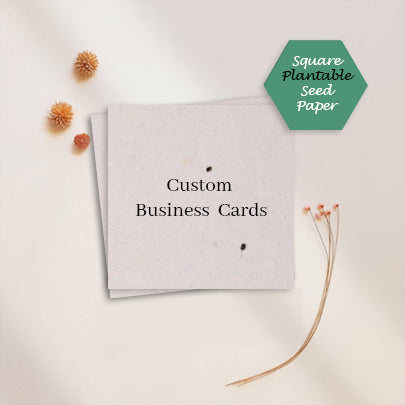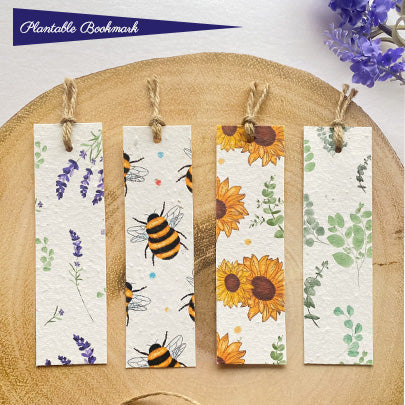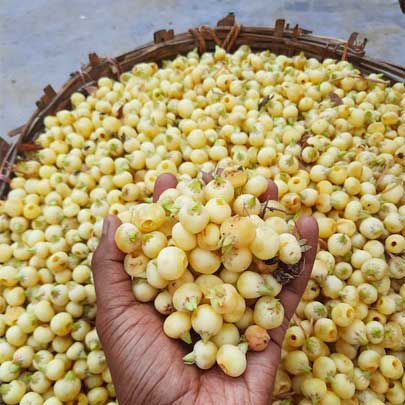The Economic And Environmental Advantages Of Choosing Seed Paper Products
In today’s world, where sustainability and eco-consciousness are becoming key priorities for consumers and businesses, seed paper products are emerging as a practical and innovative solution. Made from recycled paper and embedded with seeds, seed paper offers economic and environmental benefits that make it a worthwhile alternative to traditional paper products. Whether you are planning a special event, running a business or looking for sustainable marketing materials, choosing seed paper can have a lasting positive impact.
Here are the key economic and environmental advantages of choosing seed paper products:
Environmental Advantages
1. Reduction in Waste and Pollution
- Biodegradable and Compostable: Unlike traditional paper, which often contributes to landfill waste, seed paper is fully biodegradable and compostable. After use, it can be planted in soil, where it will break down naturally and grow into plants. This significantly reduces paper waste and contributes to a cleaner environment.
- No Harmful Chemicals: Seed paper is typically produced without harmful chemicals, dyes or bleaches, commonly used in traditional paper production. It means fewer toxins are released into the environment, making seed paper a safer, eco-friendly alternative.

2. Conservation of Natural Resources
- Made from Recycled Materials: Seed paper is usually crafted from recycled paper, which helps conserve trees and reduce deforestation. By choosing seed paper, you're promoting the recycling of existing resources rather than consuming new ones.
- Water and Energy Savings: The production of seed paper often uses less water and energy compared to conventional paper manufacturing. This helps conserve vital resources and reduces the carbon footprint associated with paper production.

3. Support for Pollinators and Biodiversity
- Promotes Pollinator Health: Many seed paper products contain seeds for wildflowers or other plants that support pollinators like bees, butterflies and birds. By using seed paper, you're directly contributing to the growth of plants, essential for maintaining healthy ecosystems and biodiversity.
- Encourages Local Plant Growth: Seed paper can be customized with region-specific seeds, ensuring that the plants that grow are native and suited to the local environment. This promotes biodiversity and helps restore natural habitats, supporting local ecosystems.
4. Reduction of Carbon Footprint
- Carbon Sequestration: As the embedded seeds grow into plants, they help absorb carbon dioxide from the atmosphere, contributing to carbon sequestration. This small but meaningful action helps combat climate change, especially when adopted on a larger scale.
- Eco-Friendly Disposal: Because seed paper breaks down naturally when planted, it reduces the need for industrial recycling processes or landfill space, both of which contribute to carbon emissions. The decomposition of seed paper is gentle on the environment and leaves no trace of waste.

Economic Advantages
1. Cost-Effective Marketing and Branding
- Dual Functionality: Seed paper products, such as business cards, promotional flyers, or event invitations, serve a dual purpose. Not only do they convey your message or branding, but they also offer a unique, lasting gift that grows into plants. This increases the perceived value of your promotional materials, making them more memorable and engaging for recipients.
- Better Return on Investment (ROI): Seed paper’s unique appeal can lead to higher customer retention and loyalty. Consumers remember and respond to businesses that demonstrate eco-conscious values, leading to better engagement and long-term ROI.

2. Boost in Brand Reputation
- Eco-Conscious Branding: As consumers become more aware of environmental issues, companies that adopt sustainable practices, such as using seed paper products, can enhance their brand reputation. By associating your brand with sustainability, you appeal to a growing segment of eco-conscious customers, helping you stand out in a competitive market.
- Positive PR and CSR: Businesses that use seed paper products can leverage this eco-friendly initiative as part of their Corporate Social Responsibility (CSR) strategy. It shows your commitment to reducing your environmental impact, which can lead to positive press coverage and a stronger brand image.

3. Long-Term Savings on Waste Management
- Reduced Disposal Costs: Traditional paper products often end up in landfills, requiring businesses to pay for waste disposal services. On the other hand, seed paper products can be planted and naturally decomposed, which can reduce long-term disposal costs and lower the burden on waste management systems.
- Sustainability Incentives: In some regions, businesses that adopt eco-friendly practices such as using recycled materials or biodegradable products may be eligible for tax incentives or rebates. These economic benefits, combined with the environmental advantages, make seed paper a financially viable choice.
4. Supporting Local and Sustainable Businesses
- Boosting Green Economies: Many seed paper products are manufactured by small, eco-friendly businesses that focus on sustainability and ethical production methods. By choosing seed paper, you are supporting local economies and promoting industries that prioritize environmentally responsible practices.
- Customization and Local Sourcing: Seed paper products can often be locally sourced and customized to meet specific needs, such as including native plant seeds or designs that reflect local culture. This adds a personal touch and reduces transportation costs and the carbon footprint associated with shipping.

5. Engagement and Educational Value
- Customer Engagement: Seed paper is a conversation starter. When recipients realize this paper can be planted, it creates a memorable experience that encourages further interaction with your brand. This interactive element can increase customer engagement and loyalty.
- Environmental Education: By using seed paper products, businesses and individuals can promote sustainability and environmental awareness. Whether through corporate campaigns or personal projects, seed paper can help educate others about the importance of waste reduction, recycling and biodiversity.

Conclusion
Choosing seed paper products is a simple yet impactful way to align economic and environmental goals. From reducing waste and conserving resources to enhancing brand value and supporting biodiversity, the advantages of seed paper are clear. Whether you’re an individual planning an eco-friendly event or a business looking to improve your sustainability efforts, seed paper offers a tangible solution that benefits both the planet and your bottom line.












































































